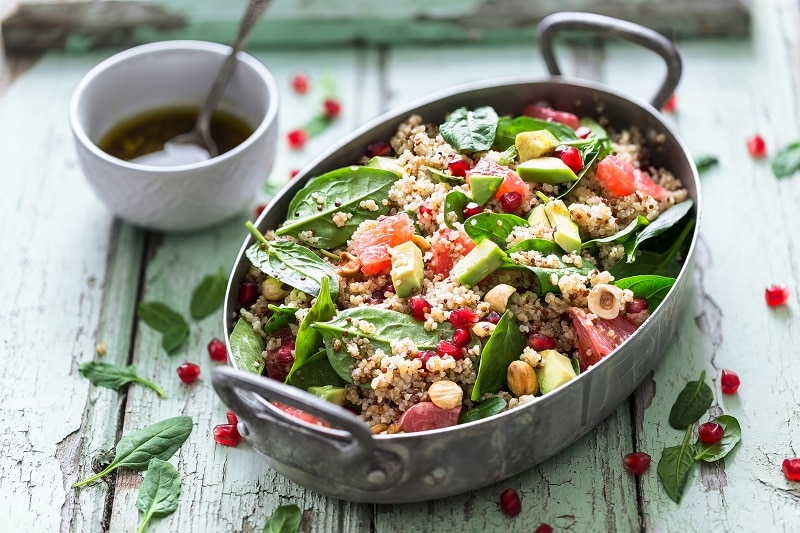A must-have ingredient in Middle Eastern dishes, Bulgur is a nutritious, quick-cooking grain that tastes delicious in Buddha bowls, salads and more.
What is bulgur?
Bulgur is a whole grain that has been cracked, cleaned, parboiled, and then dried out and sifted into small pieces. The major difference between bulgur and cracked wheat is that it’s parboiled before you get it, which simply means it’s partially cooked before it makes it to the store. This makes the cooking process for us at home much quicker and extends its shelf life. Bulgur typically takes 15 minutes or less to cook, which is faster than other whole wheat varieties like wheat berries or freekeh. Since it is wheat, bulgur is not suitable for those with a gluten intolerance or following a gluten-free diet.
Bulgur benefits
- It’s super nutritious! 1 cup of cooked bulgur has about 151 calories, 0.4 g fat, 8.2 g fiber making it a great source (29% of the recommended daily value), and a nourishing 5.6 g plant-based protein.
- A great addition to any vegetarian or vegan-friendly meal, this whole grain is naturally cholesterol-free and high in fiber.
- Bulgur contains a significant amount of manganese, about half the recommended daily value, which is an essential trace-mineral that is required in many bodily functions including bone formation.
How to cook bulgur wheat
This grain has a nutty flavor profile and a chewy texture that offers a pleasing popcorn aroma while it cooks. Remember to rinse bulgur before cooking it.
To make 1 cup of cooked bulgur:
- In pot, combine 1 cup bulgur with 2 cups water.
- Bring to boil, cover, reduce heat to simmer and cook until tender for about 12 minutes.
- Drain any excess liquid, fluff with a fork and enjoy!
As a note, depending on the brand and kind of bulgur you buy, cooking times may vary. Always check the packaging instructions.
How to store bulgur
Store bulgur just like any other grain, in a container protected from moisture, light and heat. If it’s properly stored in the pantry, it should be good for up to 24 months. Leftover bulgur or dishes containing this grain can be stored in the refrigerator for up to three days. Consider batch cooking it on your meal prep Sunday and freeze it in recipe-sized portions for easy weeknight planning.
Ways to enjoy bulgur
Like other grain varieties we’ve covered in the past, bulgur can essentially be swapped in any recipe that calls for a grain. Bulgur wheat can bulk up your favorite salad recipe, it can be used as an alternative to pilaf, and can help bind patties and meatballs. Try out a tabbouleh recipe for a fresh and satisfying addition to your dinner table.
Whether you’re looking to boost your grain intake or wanting to switch up your cooking routine, bulgur will be a flavorful addition to any home cooked meal.

